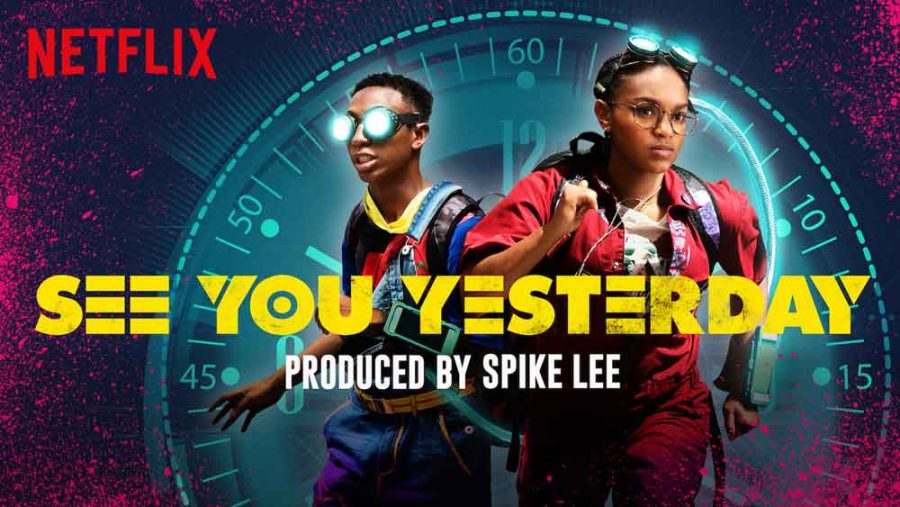Netflix’s “See You Yesterday”
June 3, 2019
Netflix’s See You Yesterday is a science-fiction film which presents a broader commentary on sociopolitical issues. The film was directed by Spike Lee protege Stefon Bristol, and it stars Eden Duncan-Smith as Claudette “CJ” Walker and Dante Crichlow as Sebastian J. Thomas.
In the film, high school students are fully invested in time travel; however the unnecessary murder of CJ’s brother Calvin deeply affects both characters and alters the courses of their lives. The film pays homage to time travel movies of the past, with a brief cameo from Back to the Future star, Michael J Fox, all the while providing a take on societal issues such as racial conflict in present day Brooklyn.
The main characters travel back in time, but rather than brush away the science of it all, the movie fully explains the fundamentals of how time travel would work. As the students prepare for a school expo and during a “Temporary Relocation Test,” CJ and Sebastian discuss how their invention operates; protons attach to the rotor circuit in their back pack/time travel contraption, and the science creates a quantum foam that opens a wormhole.
CJ and Sebastian highlight on how poor tubing relates to the force of protons and affects their prototype. But Calvin’s untimely murder changes everything and the two friends butt heads about trying to go back in time to save Calvin, because Sebastian is concerned of the consequences if they don’t respect the scientific rules.
CJ and Sebastian discuss how they need to change the spin of electrons, and how antimatter colliding with matter will provide the pure energy that they’re looking for. This essentially means that they will only have ten minutes to accomplish their mission before the worm hole begins to close.
However the two fail to save Calvin, and while time traveling, Sebastian dies too. CJ has no space for any errors while attempting again to save Calvin and Sebastian. In the end Calvin becomes self-aware and sacrifices himself for Sebastian’s life, and for the greater good. The last scene of See You Yesterday ends with CJ making another trip into the past. The conclusion of the film is open-ended; did CJ find a solution to right the wrongs of her past? It’s entirely up to the imagination of viewers.
The film illustrates the lengths Black Americans have to go to in order to even visualize a peaceful existence; the end of the film lacks clarity, but it appears to tell viewers that we should keep on trying and not get too focused on the outcome.

